Widespread Support for Tackling Climate Change & Reconciliation Cost-Effectively through First Nations Guardians Programs
A few weeks ago, we partnered with the Indigenous Leadership Initiative to gauge Canadians’ support for innovative Indigenous stewardship programs through an in-depth survey of 2,000 Canadian adults (fielded October 24th to 27th, 2023).
Indigenous Guardians are trained experts who care for lands and waters on behalf of their First Nations. They test water quality, manage protected areas, restore species at risk, monitor development projects, and support language and culture programs. There are more than 160 First Nations Guardians programs now operating across Canada. You can learn more here.
We ran a survey where we introduced Canadians to these Guardians programs, and asked them to tell us how they felt about their work and federal funding for their programs. In short, Canadians are on board. 3 in 4 Canadians support Guardians programs after reading a description of them, and an equal proportion support the federal government investing in Guardians programs to fulfil their functions. Support for both Indigenous Guardians and federal funding is decidedly cross partisan.
Canadians see Guardians programs as a cost-effective solution to some big challenges. It’s clear that even in the current economic context, Canadians remain highly concerned about climate change and the need to conserve nature.
David Coletto, Chair & CEO Abacus Data
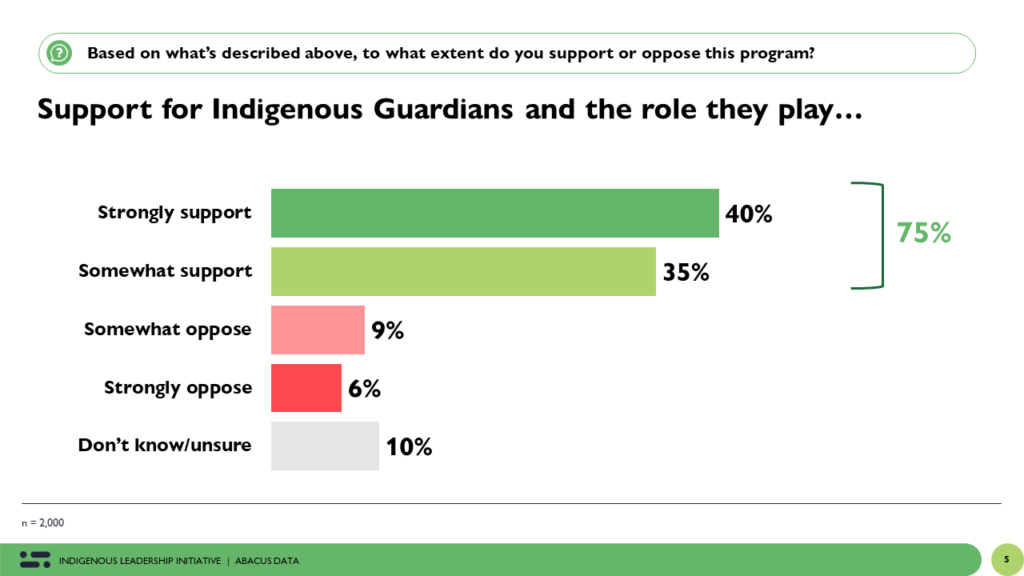
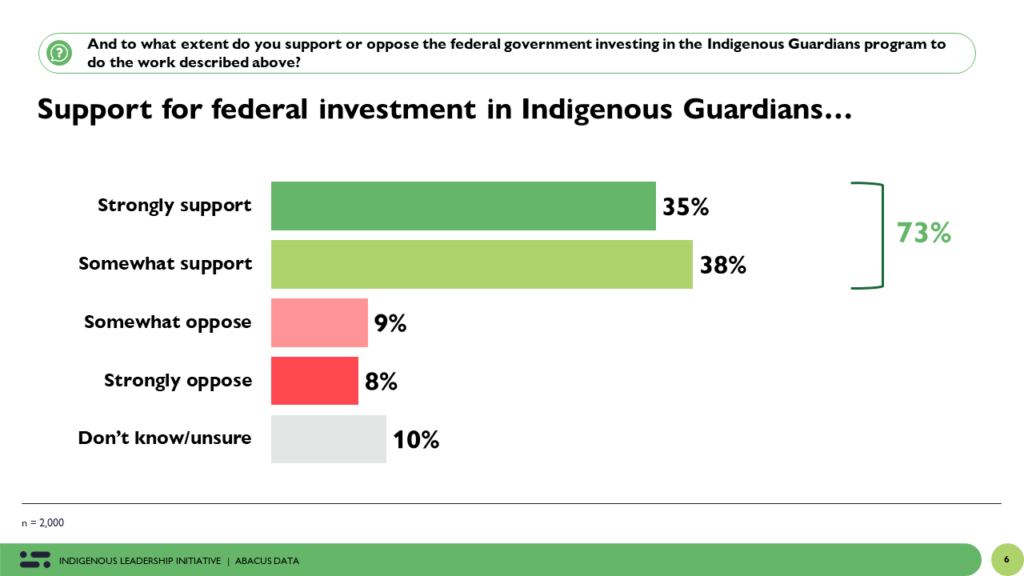
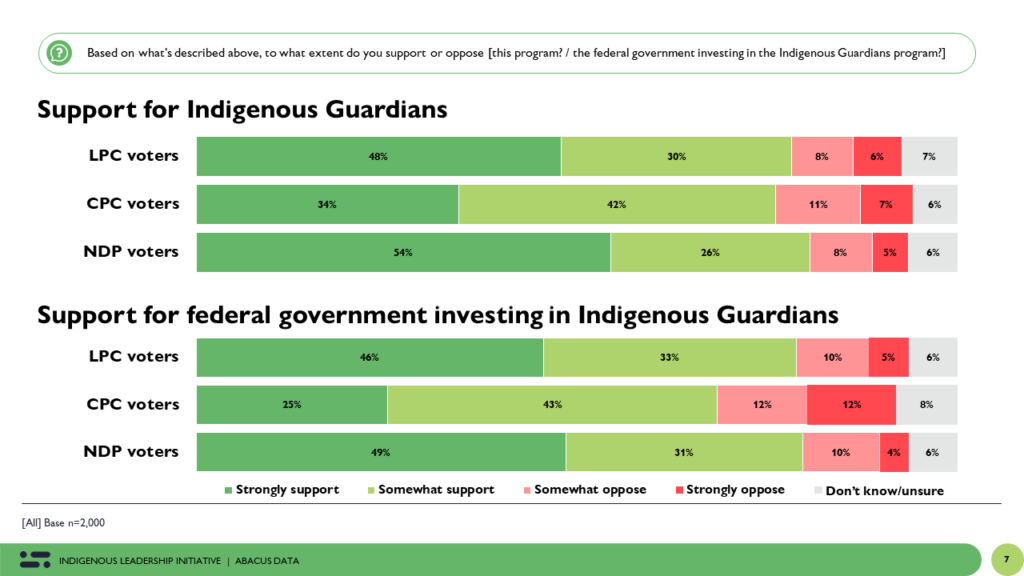
It’s not hard to see why. Most Canadians are acutely aware of climate change’s impacts, from increased wildfires and flooding to landslides and destruction of animal habitats and communities. They see Indigenous Guardians playing a helpful role in grappling with these challenges.
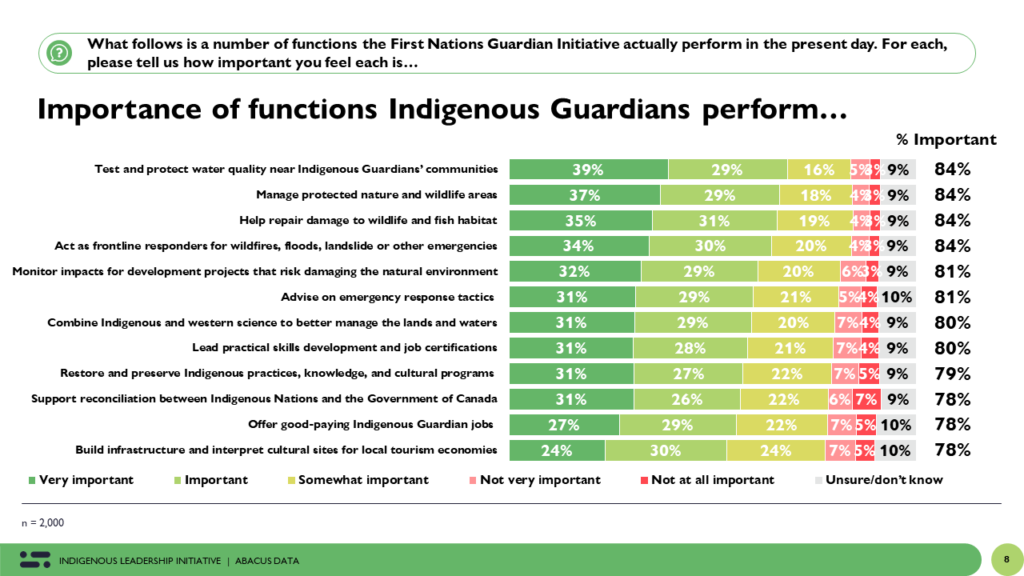
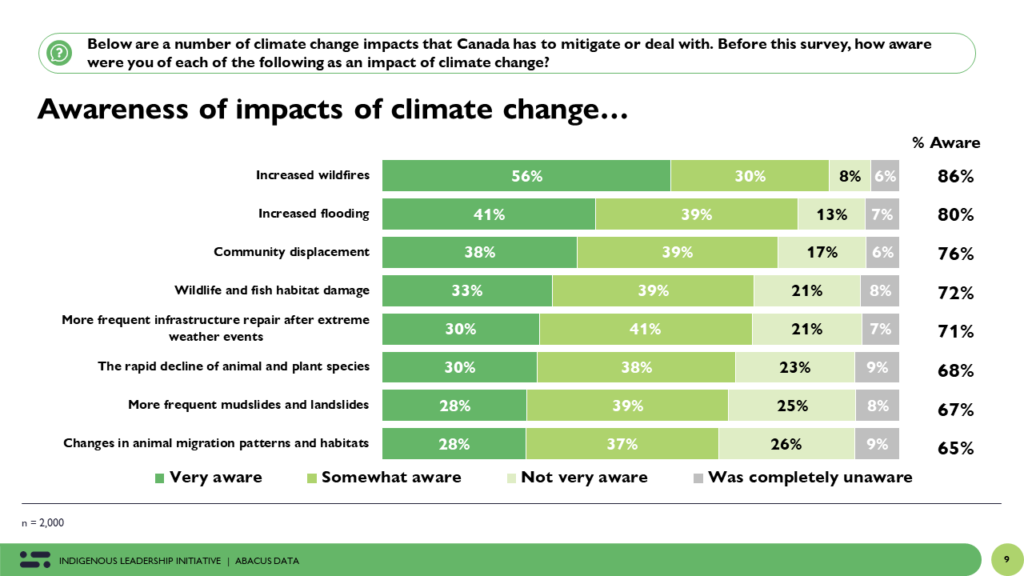
When Indigenous Guardians’ functions are presented to Canadians, ~8 in 10 view the functions as important, from testing water quality (84%) and managing protected nature and wildlife areas (84%) to advising on emergency response tactics (81%).
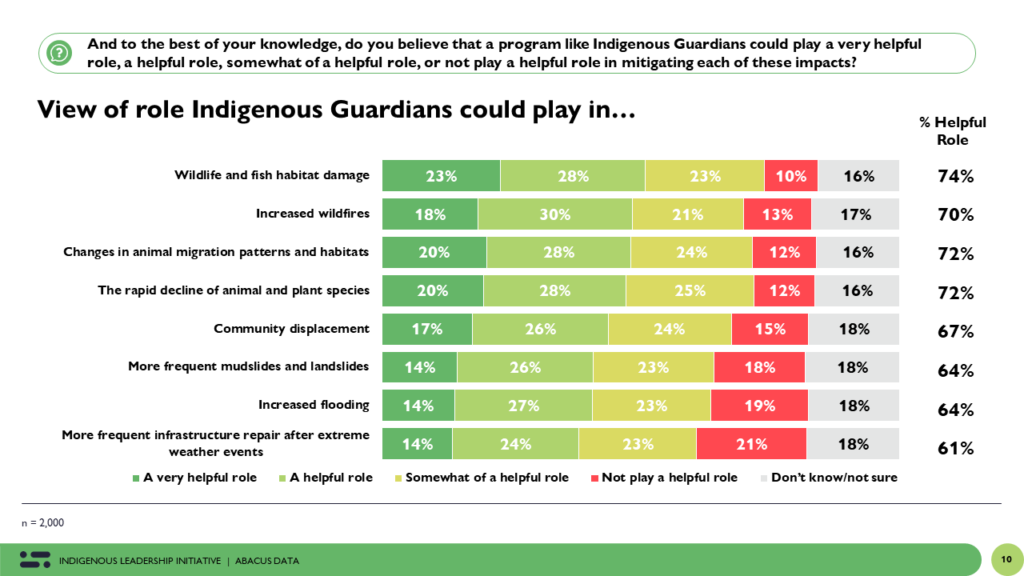
And they understand both the urgency and logic of investing in Indigenous Guardians. 7 in 10 agree:
- Climate change and its effect on our northern boreal forests is only going to get worse (69%)
- Federal government departments are not always best placed and nor do they have enough staff in locations to do this necessary climate mitigation work (71%)
- Having Indigenous Peoples and their Nations performing these land management functions is most cost-effective approach (69%)
- Indigenous Nations are best suited to lead conservation and stewardship initiatives in their territories as they are more deeply integrated with the land (67%).
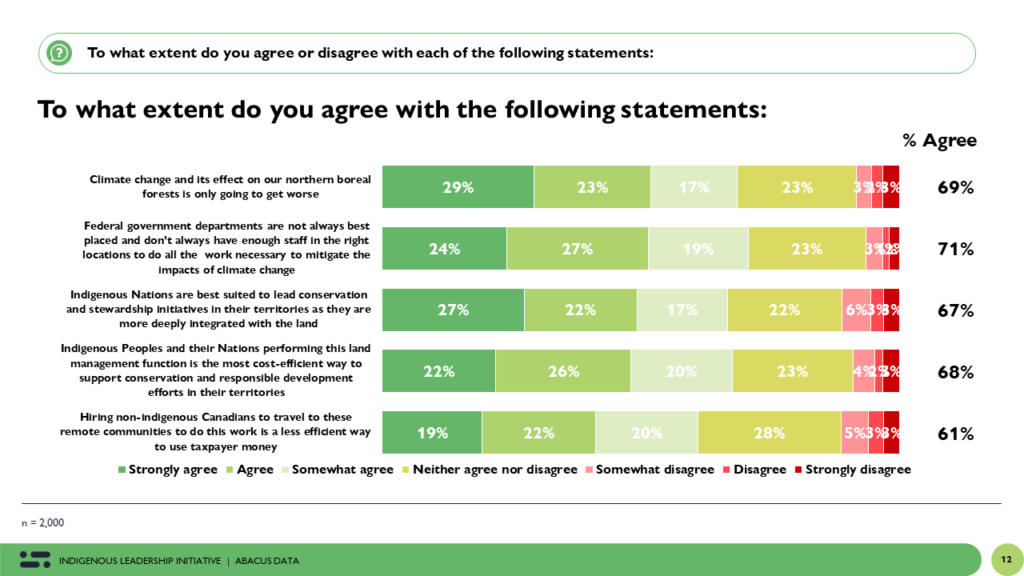
For these reasons and more, Canadians prefer Indigenous Guardians led conservation over having federal departments spend money on more staff. Our survey found that 7 in 10 Canadians prefer leveraging Indigenous Guardians programs to add more northern coverage, over having the federal government hire more conservation officers.
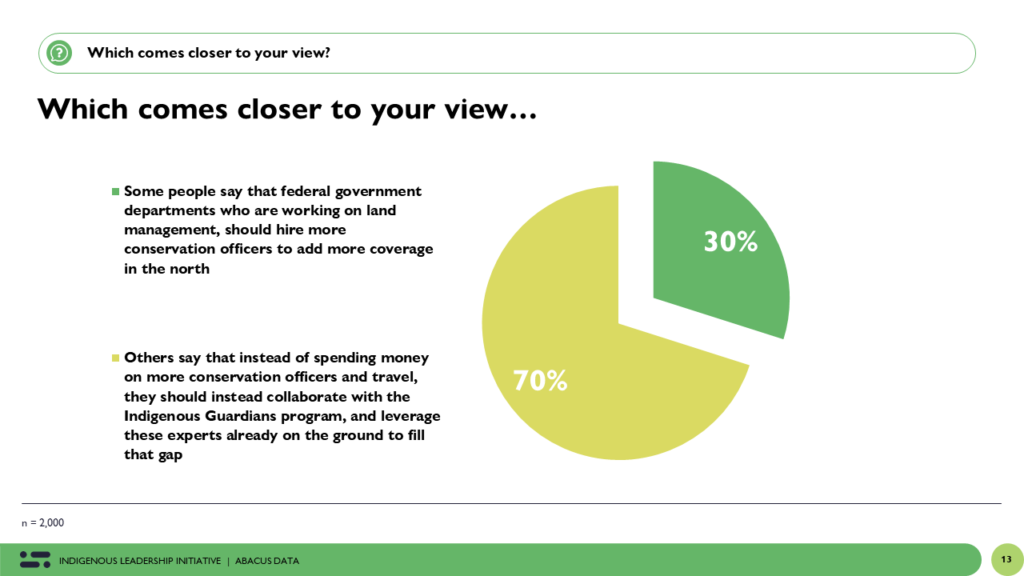
The Upshot
According to Abacus Data Chair & CEO David Coletto: “Canadians see Guardians programs as a cost-effective solution to some big challenges. It’s clear that even in the current economic context, Canadians remain highly concerned about climate change and the need to conserve nature. And crucially in this affordability crisis, the public views Guardians as an economical and responsible way to address conservation, reconciliation, and climate change. To that end, its clear that how Canadian ratepayers feel about these programs is stronger than just support for the work. They are on board with putting federal funding towards these initiatives, seeing a prudent way to spend tax dollars on the challenges we collectively face.”
Methodology
The survey was conducted with 2,000 Canadian adults from October 24 to 29, 2023. A random sample of panelists were invited to complete the survey from a set of partner panels based on the Lucid exchange platform. These partners are typically double opt-in survey panels, blended to manage out potential skews in the data from a single source.
The margin of error for a comparable probability-based random sample of the same size is +/- 2.3%, 19 times out of 20.
The data were weighted according to census data to ensure that the sample matched Canada’s population according to age, gender, educational attainment, and region. Totals may not add up to 100 due to rounding.
This survey was paid for by the Indigenous Leadership Initiative.
Abacus Data follows the CRIC Public Opinion Research Standards and Disclosure Requirements that can be found here: https://canadianresearchinsightscouncil.ca/standards/